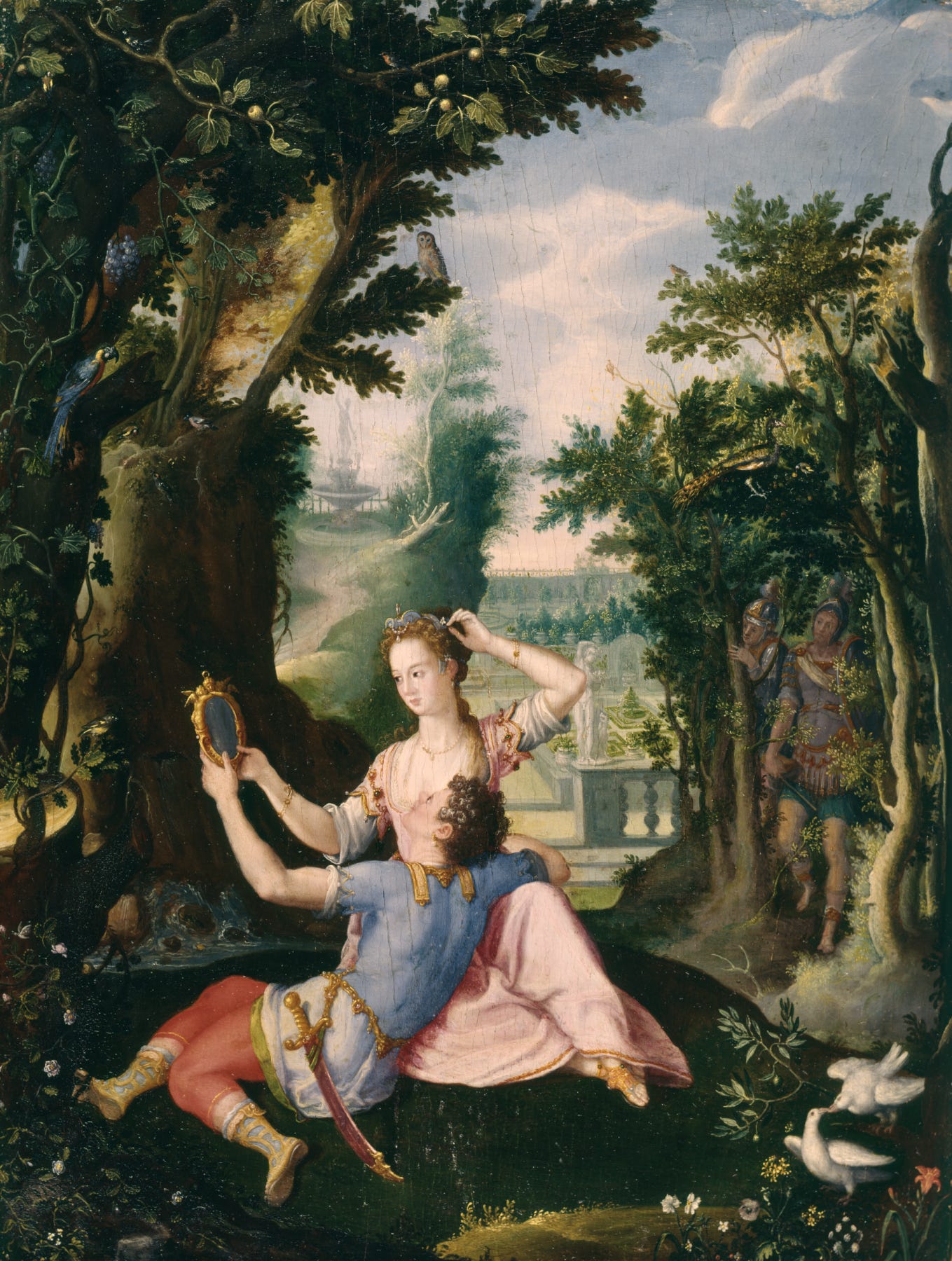When the average person thinks of a triumphant soprano conquering the high register on stage, they think Queen of the Night — Mozart’s Magic Flute. And fair enough: that’s three minutes of pure fireworks. Fiery runs and blazing F6s (that’s music speak fro really-freakin’-high) with the queen basically shouting vengeance at the heavens. It’s impressive.
But what if I told you there’s one aria that makes that look like a warm-up exercise? One so difficult that even the bravest sopranos approach it like a mountain with no summit?
That’s Rossini for you.
Armida isn’t as well-known as The Barber of Seville or Cenerentola, but it’s Rossini at his most deliriously extravagant. Based on Tasso’s Jerusalem Delivered, it tells the story of the sorceress Armida, who seduces the Christian knight Rinaldo to distract him from his holy mission. Naturally, she falls for him herself — because opera.
Now, get this: Armida has turned the forest into a vast pleasure palace (who would say no to that?!) and has utterly seduced Rinaldo. “D’amore al dolce impero” comes right after. She’s triumphant, exultant, almost drunk on her own power. The aria’s title means “To the sweet empire of love,” and that’s exactly what she’s celebrating — her victory as both enchantress and woman. Rossini gives her music that spirals and blooms endlessly upward, like passion taking flight.
And the result? Utter madness. But the beautiful kind.
Callas, of course, makes it sound like sorcery incarnate. You can hear the iron discipline of her bel canto training — every run laser-cut, every attack alive with purpose. There’s a recording from her 1952 Armida in Florence that’s honestly one of the great vocal pyrotechnic acts ever captured (I only wish it were better quality!) Listen out for the audience absolutely losing it at the end. Great stuff:
Montserrat Caballé, one of the best singers of the twentieth century and never one to be outdone, does it even faster than Callas— she gilds Rossini’s already glittering lines with extra ornamentation, because why not? It’s Caballé:
Honestly, it’s a crime this opera isn’t staged more often. The music is lush and unrelenting. And this aria — this ten-minute, no-holds-barred hymn to seduction — is the kind of thing that reminds you just how far Rossini could push the human voice when he wanted to.
If Queen of the Night is fireworks, Armida is a full-blown supernova.
Curious to know what you think. We will be moving on from Rossini for a while, I gather. Gosh, there’s so much to get to!


